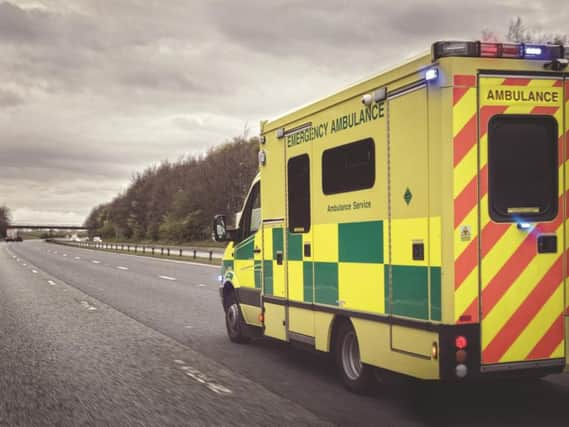Chasing healthier outcomes


It has been little over a year since Scotland became the first country in the world to introduce minimum unit pricing (MUP), and the latest official figures show that the policy is clearly working.
MUP was first called for by Scottish Health Action on Alcohol Problems (SHAAP) in 2007 before being implemented by the Scottish Government in May last year to challenge cheap prices charged for alcoholic drinks in Scotland.
Numbers released by Holyrood this month show that there has been a 3 per cent fall in alcohol sales per adult in the country since then, while the volume of alcohol sold per adult in Scotland in 2018 reached its lowest level in 25 years.
SHAAP, which was established in 2006 by the Scottish Medical Royal Colleges and based within the Royal College of Physicians of Edinburgh, is a clinical group aimed at tackling the public health issue of alcohol-related harm to improve the health and wellbeing of people in Scotland through a range of evidence-based approaches. It is also working to change the public’s perception of alcohol and reduce its negative impact on young people.
Last month, SHAAP was named as the first sponsor of Scottish Women’s Football’s National Performance League and NPL Cup, the elite level for girls’ club football in Scotland and the body lauded its stance on not accepting alcohol sponsorship.
Since SHAAP began, the number of alcohol-related crimes has also decreased substantially.
A Scottish Government study published at the start of the month shows that between 2008-09 and 2017-18 the number of serious assaults in Scotland has dropped by 35 per cent.
It also suggests that the west of Scotland is leading the way, with the number of serious assaults committed in the region falling from 64 per cent to 50 per cent.
SHAAP’s work is led by a steering group with representation from the Medical Royal Colleges and Faculties in Scotland as well as invited experts.
The group also includes representatives from clinical organisations working to improve the marketing, availability, health and criminal aspects of alcohol.
One such member is Dr Christine Goodall, who co-founded the Scottish charity Medics Against Violence (MAV) two years after SHAAP began, and who welcomes this reduction in the number of violent crimes.
Having worked in oral and maxillofacial surgery at the Glasgow Dental Hospital and School for 12 years, treating violence-related – and often life-changing – injuries had become the norm for her team by 2008. While most incidents of violence involved knives, more than 80 per cent of assaults she was seeing were drink-related.
“Alcohol was a huge problem and we were seeing the same people coming back [to the Accident and Emergency department] again with similar injuries, and we were becoming very immune to this,” says Goodall, who is a senior lecturer in oral surgery at the University of Glasgow and also honorary consultant oral surgeon at NHS Greater Glasgow and Clyde.
She adds: “Facial trauma is probably the most common trauma related to violence, and alcohol was involved in almost all cases where facial trauma patients had been assaulted.”
So much so, that alcohol interventions have become part of standard care to facial trauma patients.
MAV, which is a member of the World Health Organisation’s Violence Prevention Network and follows its “disease-prevention model”, runs a school programme to help prevent violent and alcohol-related crimes. Through the programme, trained NHS professional volunteers have spoken to more than 150,000 young people about their experiences of violence.
Armed with a strategically-designed lesson plan and a 15-minute film, Your Choice, MAV volunteers engage with children aged 13 to 14 who hear contributions from both the medics and the victims of violence, and alcohol is the one thread which runs through most sessions.
The programme has won several awards, including the Scottish Policing Award for Criminal Justice and Tackling Crime-Outstanding and the Lord Provost of Glasgow’s medal for Community Service.
MAV has also run the Navigator programme in partnership with the VRU and NHS since 2015. Through it, support workers at A&E departments across Scotland assist people with complex social issues upon their release from hospital.
The scheme is designed to break the cycle of violence by connecting people with organisations that can help them with a range of issues, including domestic abuse and alcohol.
Combined with minimum unit pricing, work on issues such as adverse childhood experiences and the reduction of the availability of alcohol in deprived areas, in line with the WHO approach, Goodall is hopeful that the number of violent and alcohol-related assaults will continue to fall.
She observes: “In Scotland, we have traditionally had more of an issue with alcohol than other countries, and I think we probably still do. [Despite levels being] reduced across the board, we still have an issue with it compared to some other countries.
“But what we are seeing in the last ten years is that violence has gone down across Europe in general.
“What we have seen in Scotland, particularly in the west, is that violence has reduced at a faster rate than it has anywhere else, so we are definitely tackling the violence problem, though we still have to tackle the issue of alcohol because it is still the case that most of the incidents do involve alcohol.”